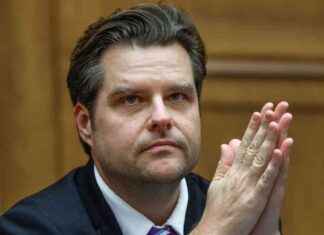In the words of Elie Wiesel, “Today, as yesterday, a nation is judged by its attitude toward refugees.” He made this comment in support of the Toronto Board of Rabbis’ condemnation when Canada designated certain countries as “safe” for refugees in 2012. Unfortunately, the words ring true again today.
On Jan. 25th, U.S. President Donald Trump signed the “Border Security and Immigration Enforcement Improvements” executive order. Aside from directing the building of the wall along the Mexico-U.S. border, the order specifically targets people who arrive in the U.S. without status, including those seeking asylum, and calls for harsh measures. The order could result in asylum claims grinding to a halt, or claimants being denied fair process while languishing in detention centres.
Two days later, he signed the “Protecting the Nation from Foreign Terrorist Entry into the United States” executive order, essentially banning refugees and immigrants from seven predominately Muslim nations: Syria, Somalia, Yemen, Iran, Iraq, Libya and Sudan. It was not lost that this order was signed on Holocaust Remembrance Day.
In the United States, ordinary people spilled onto roads and airports to protest, while lawyers filed court cases and corporations, politicians and human rights organizations spoke out. Canadians demonstrated in solidarity.
Prime Minister Justin Trudeau tweeted his support for refugees: “To those fleeing persecution, terror & war, Canadians will welcome you, regardless of your faith. Diversity is our strength.”
The only action, however, the Canadian government has taken is to allow those stranded in Canada by the order to apply for a permit to remain in our country temporarily.
A late night parliamentary debate failed to convince the Canadian government to undertake any further concrete action in response to these orders.
Yet, we are witnessing in the U.S. the very country-based discrimination that in July 2014 the Canadian Federal Court declared unconstitutional in Canada.
In 2012, our former government had issued two orders-in-council; Canadian executive orders of sorts. These orders were not debated in the House of Commons, nor was there any prior stakeholder consultation. With the stroke of a pen, they became policy.
The orders stripped health coverage from refugee claimants from so-called Designated Countries of Origin (DCO’s) as the former government launched a media campaign, declaring claimants from certain countries “bogus.” The DCO list included Mexico and Hungary, countries that are condemned by human rights organizations for violating the rights of vulnerable groups, such as women facing domestic violence and LGBTQ individuals.
In finding the orders unconstitutional, the court held the previous government to account not simply on the policy itself, but on its public rhetoric when it ruled that the policy “perpetuates the stereotype that refugee claimants from DCO countries are queue-jumpers, ‘bogus’ claimants and cheats.”
While we applaud Prime Minister Trudeau for standing up for refugees and minorities, using clear and unmistakable language to support diversity, words are not enough. We need action.
Our government must pause our participation in the Safe Third Country Agreement and examine whether the U.S. is truly a safe place for refugees as a result of not only the two orders, but also their ripple effect.
The government should also increase the number of refugees Canada will admit this year and work with international refugee organizations to identify refugees who have already been vetted by the U.S., but are now left in limbo by the executive order, and admit them to Canada.
Indeed, it can work with the many groups of Canadians who have raised thousands upon thousands of dollars to privately sponsor refugees and who are now ready and waiting, while the people they wish to help languish in makeshift camps overseas.
These actions will speak far louder than any words, and will send a clear message not only to Canadians, but to the world, that when we say diversity is our strength, we truly believe it.
Upon the death of Elie Wiesel, Prime Minister Trudeau tweeted, “Elie Wiesel spent his life in service to humanity, keeping the memory of the Holocaust’s horror alive. It is for us all to carry this torch.”
Now is the time to lift the torch.
Michele Landsberg is the honorary co-chair, Gabriela Ramo is a member and Maureen Silcoff is president of the Jewish Refugee Action Network.
Michele Landsberg is the honorary co-chair, Gabriela Ramo is a member and Maureen Silcoff is president of the Jewish Refugee Action Network.
The Toronto Star and thestar.com, each property of Toronto Star Newspapers Limited, One Yonge Street, 4th Floor, Toronto, ON, M5E 1E6. You can unsubscribe at any time. Please contact us or see our privacy policy for more information.
Our editors found this article on this site using Google and regenerated it for our readers.





